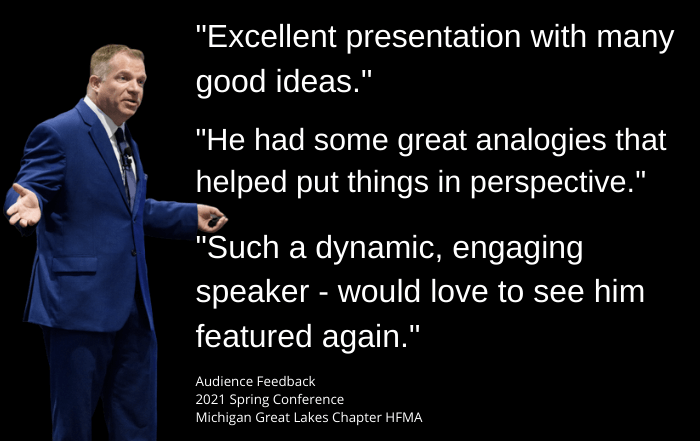 As you look to make improvements in business, you need to make sure you don’t worry about the wrong things. Your focus is valuable and it is not unlimited. Some make the mistake of putting their attention where it really doesn’t matter.
As you look to make improvements in business, you need to make sure you don’t worry about the wrong things. Your focus is valuable and it is not unlimited. Some make the mistake of putting their attention where it really doesn’t matter.
When I worked in TV news, the big thing was making sure your station had a breaking news story first. Coming in second or third was a source of shame.
When our newscasts would air, you’d see producers frantically taking notes on legal pads, as they watched the two or three competing stations at once. They lived in fear of being scooped on a story.
For them, it was a metric of success. If your station got beat, you felt like a failure. This is an example of how you can worry about the wrong things.
It was rare that one station really scooped another. One might have covered the story better but usually everyone would have something on it.
Even if your station was totally beat on a story, with a few frantic phone calls, you could put a shortened version of the story on the air, before the end of your newscast.
Another thing to consider was that only news people watch multiple newscasts simultaneously. Yes, viewers at home might click around several channels but when they’d stop watching one, they’d start watching another. So they might not even know your station was scooped.
Much of the time, viewers picked newscasts based on random choices, like a longtime weather anchor. Some would watch your newscast simply because they were too lazy to change the channel, after the previous program ended.
For them, the claim of having a story, “First,” was not going to change viewing habits. So you have an industry that is worried about something that really doesn’t matter that much.
What should they have been worrying about? Perhaps, newsrooms should have focused on being great journalists, rather than speed of delivery. That switch doesn’t give you a dopamine hit but will likely produce long term success.
Use these tips to consider whether you worry about the wrong things:
Can It Be Changed?
Consider if you can control the situation. For instance, you can’t control rain. But you can carry an umbrella.
Also, if getting wet from rain is a major issue, then you could just stay inside. These are actions you can take but none will change the weather.
Worrying about things you can’t control, wastes a lot of time and energy. Prepare as well as you can and know you’ve done your best, no matter the outcome.
Worst Case Scenario
Let’s say you choose to do nothing about your current challenge. How bad will things be and can you live with the problem?
For example, while you may desire the features on the latest smartphone, you may not have the budget to buy it. Living with an older smartphone for a little longer, while not perfect, may be an acceptable situation.
Getting upset, every time you use your older phone, is not a good use of your energy.
Motivation to Change?
Is your perceived problem bad enough that you will take action to solve it? Imagine, you don’t like business networking but feel like your professional footprint needs to include more people.
You can either take steps to meet more people or continue to not take part in network activities, at the necessary level. The uncomfortable choice appears to be the right one.
But if you can’t find the motivation to change, then you need to not worry about the thing that you’re not going to do.
Learn to Embrace Perspective
Time can provide perspective for our concerns. Think ahead one year. Will your current issue really matter that much?
As an exercise, today you should write down your biggest concerns. In a year, revisit that list and see if you were right. Then consider how much you drained yourself emotionally, on things that weren’t all that important.
In the moment, it may feel like you may need to worry about everything. The more you can step back from a problem and analyze it, the better you’ll be able to give it the correct response.






